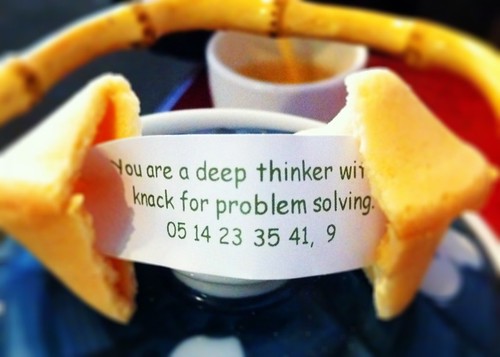Does a limit on how many you can buy make you buy more?
om Brian Wansink's excellent book Mindless Eating: Why We Eat More Than We Think: A while back, I teamed up with two professor friends of mine—Steve Hoch and Bob Kent—to see if anchoring influences how much food we buy in grocery stores. We believed that grocery shoppers who saw numerical signs such as “Limit 12 Per Person” would buy much more than those who saw signs such as “No Limit Per Person.” To nail down the psychology behind this, we repeated…
1 min read
Could forgiveness be the cure to procrastination?
s: The key finding was that students who'd forgiven themselves for their initial bout of procrastination subsequently showed less negative affect in the intermediate period between exams and were less likely to procrastinate before the second round of exams. Crucially, self-forgiveness wasn't related to performance in the first set of exams but it did predict better performance in the second set. 'Forgiveness allows the individual to move past maladaptive behaviour and focus on the upcoming examination without the burden of…
1 min read
Does gossip make us less selfish?
a Science Daily: In every condition, people acted selfishly to some degree -- most people kept more than an equal share for themselves. But when their actions were public and the chance for gossip was high, people became substantially less selfish. When people knew that their selfishness would be on display -- and very likely to be talked about -- they acted most generously to others. "When the threat of gossip exists, group members can expect that they will be…
1 min read
A Quick And Easy Way To Make Yourself Tougher
and up straight. Via Eurekalert: ...poor posture not only makes a bad impression, but can actually make you physically weaker. According to a study by Scott Wiltermuth, assistant professor of management organization at the USC Marshall School of Business, and Vanessa K. Bohns, postdoctoral fellow at the J.L. Rotman School of Management at the University of Toronto, adopting dominant versus submissive postures actually decreases your sensitivity to pain. And: ...their research suggests that curling up into a ball may make…
1 min read
A Quick, Easy Trick For Getting People To Like You
socially optimistic. Expect that people will like you and they probably will. Via Psyblog: So this provides evidence that the acceptance prophecy holds true. In this experiment people who expected to be accepted did act more warmly towards a stranger and consequently they were perceived as more likeable. And: Social optimists, of course, are in the happy position of expecting to be accepted and finding that, generally speaking, they are. Social pessimists, though, face the dark side of what…
1 min read
To quickly and creatively solve a problem should you give it to someone else?
n Pink's fantastic blog covers interesting new research that "when people solved problems on behalf of others, they produced faster and more creative solutions than they did when they solved the same problems for themselves." Subjects were more likely to come up with the answer on behalf of another person than for themselves; the farther away the other person was imagined to be, the more likely the participants were to come up with the correct answer. Polman and Emich say…
1 min read
Does leaving things unfinished make you stupid?
en after one stops actively pursuing a goal, many mental processes remain focused on the goal (e.g., the Zeigarnik effect), potentially occupying limited attentional and working memory resources. Five studies examined whether the processes associated with unfulfilled goals would interfere with tasks that require the executive function, which has a limited focal capacity and can pursue only one goal at a time. In Studies [Study 1] and [Study 2], activating a goal nonconsciously and then manipulating unfulfillment caused impairments on later tasks requiring…
1 min read
Should everyone be required to learn a musical instrument?
m sure it sounds strange: a fascist rule that makes people learn to create music. I'm not a hippie, nor am I Amy Chua. I've got evidence: A simple cost-benefit framework is used to estimate substantive social benefits associated with a universal music training program in Venezuela (B/C ratio of 1.68). Those social benefits accrue from both reduced school drop-out and declining community victimization. This evidence of important social benefits adds to the abundant evidence of individual gains reported by the developmental psychology…
2 minutes








